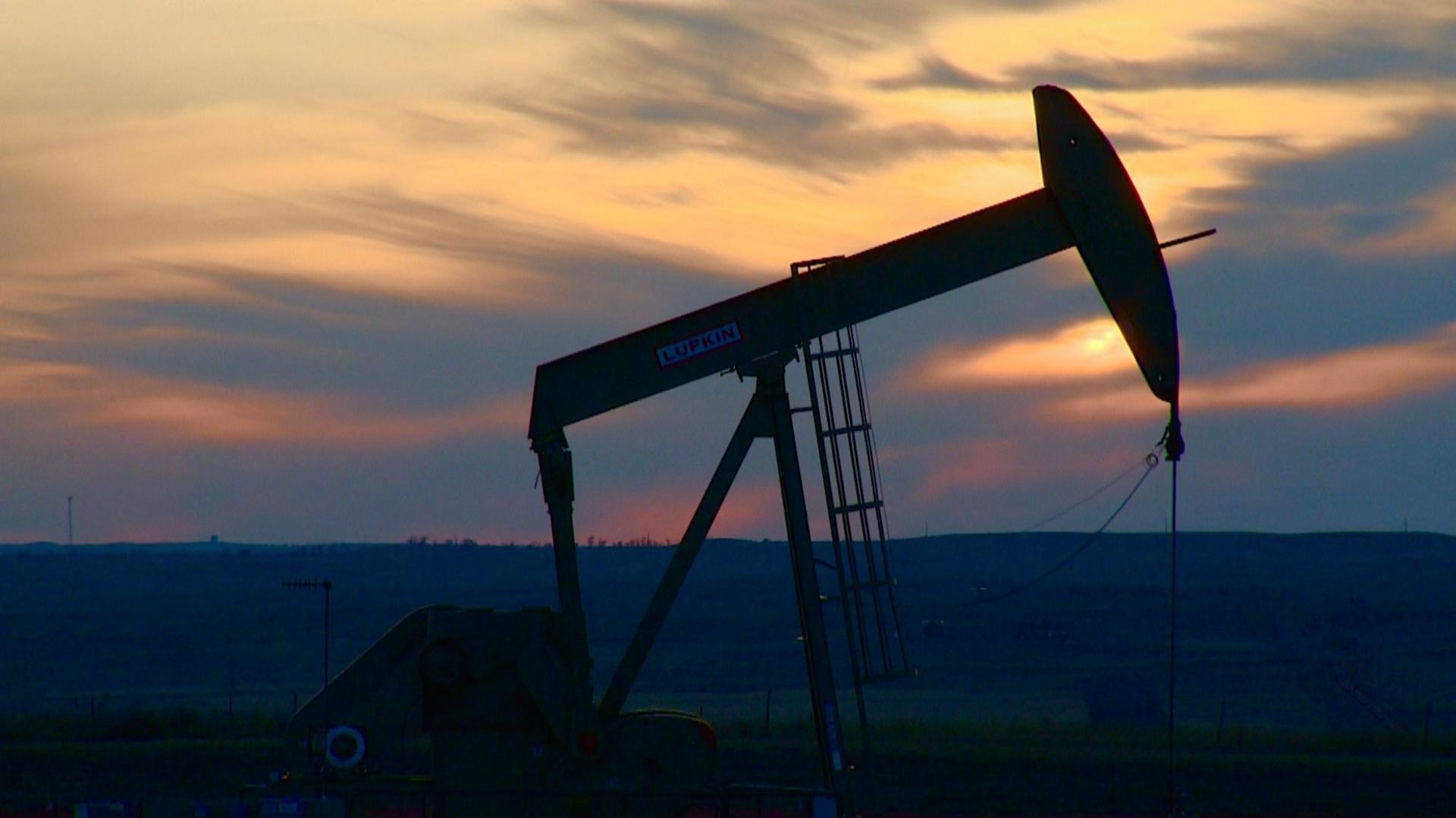Oil prices dive after producers fail to agree output cap
- Published
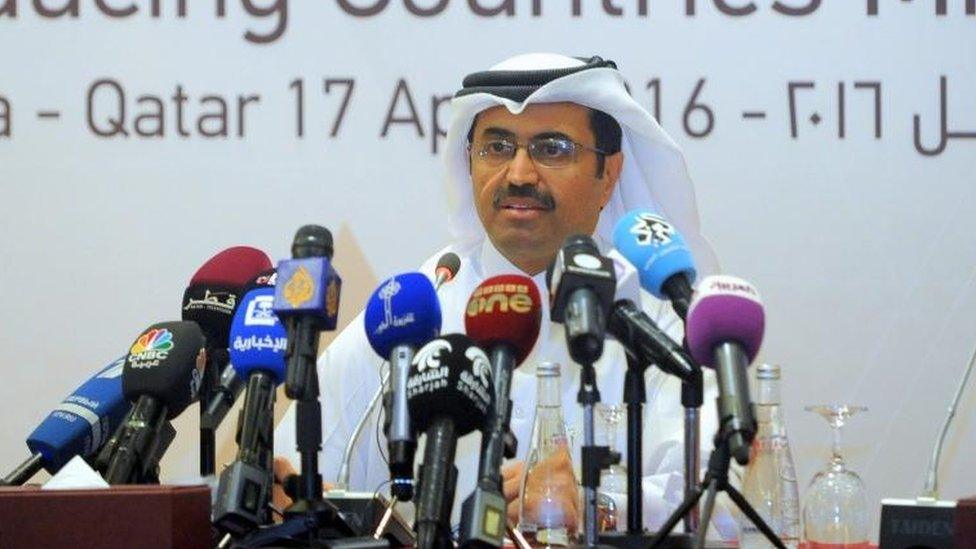
Qatari Energy Minister Mohammed Saleh al-Sada said oil producers needed "more time"
Oil prices have dropped sharply after a meeting of oil producers failed to agree an output freeze.
Brent crude fell 7% at one point before recovering some ground. In afternoon trade it fell 3.4% to $41.70 a barrel.
The meeting in Qatar was attended by most members of oil producers' group Opec, including Saudi Arabia, but not Iran.
Saudi Arabia, the world's biggest exporter, had been prepared to freeze output if all Opec members had agreed.
But Iran is continuing to increase output following the lifting of sanctions against it.
"As we're not going to sign anything, and as we're not part of the decision to freeze output, we ultimately decided it was not necessary to send a representative," the Iranian government said.
After hours of talks in Qatar, the country's energy minister Mohammed bin Saleh al-Sada said that the oil producers needed "more time".
He said after the meeting: "We of course respect [Iran's] position... The freeze could be more effective definitely if major producers, be it from Opec members like Iran and others, as well as non-Opec members, are included in the freeze."
The price of US crude oil initially fell 6.8%, or $2.82, to $38.68 a barrel. It too clawed back some of those losses and in was trading down 3.6% in the afternoon at $38.90.
The Russian rouble also fell sharply, dropping 2% against the US dollar to 67.79. In mid-afternoon trading it was up 0.57% at 66.65.

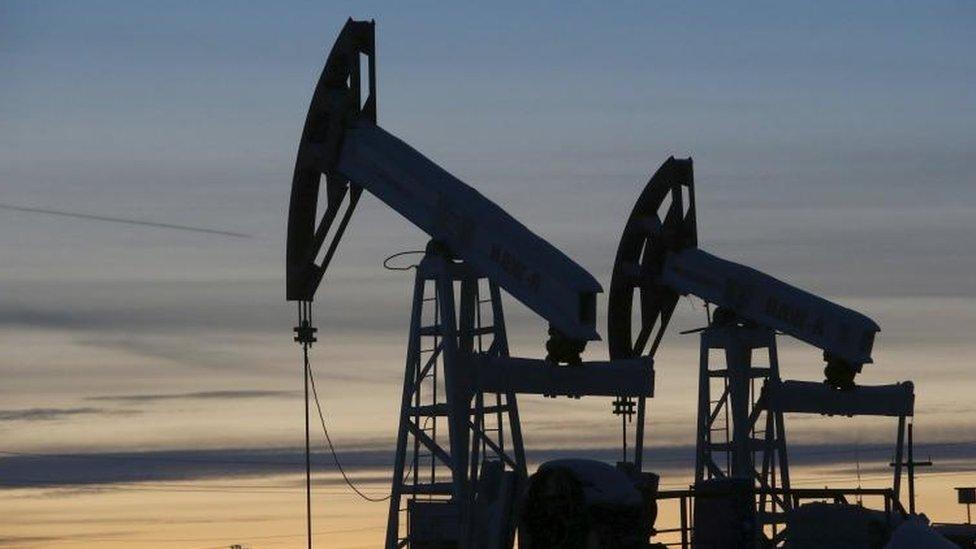
Analysis: Andrew Walker, BBC World Service economics correspondent
The failure to agree a freeze is not going to help oil exporters desperate to see the price of crude oil rise. They are hurting. Even Saudi Arabia - despite having significant financial buffers - is overhauling its public finances and trying to diversify its economy away from oil.
Other major oil producers are finding life even harder. One Opec member, Angola, has even gone to the International Monetary Fund seeking to negotiate financial assistance.
There is, perhaps, some compensation for the countries at the Doha meeting in that their failure to agree to curtail supply increases is likely to renew the pressure on shale oil producers in the US, who were not and never would be represented at a gathering such as this.
The rise of the American shale industry in the last decade or so is one of the main reasons why global supplies are so plentiful and why prices are now less than half what they were in mid-2014.

Markets 'rebalancing'
The meeting in Qatar was not formally an Opec event, though most of the group's members were represented.
Opec has been slow to respond to the sharp fall in oil prices, which are still less than half the peak of $115 ($81) a barrel seen in June 2014.
The price of oil had risen in recent weeks, largely due to speculation that some major exporters would limit supply.
Amrita Sen, chief oil analyst at Energy Aspects, told the BBC that oil markets were "rebalancing" even without a deal being reached in Qatar.
"Production is falling everywhere because of low prices so the freeze actually wouldn't really matter for the markets because people are already producing at maximum levels and production is anyway gradually falling with or without the freeze deal," she said.
"But for sentiment it has a huge impact because at the moment these guys aren't even able to talk and come to an agreement."
The FTSE 100 was barely changed in afternoon trading. Shell, which earlier had shed more than 2% was trading down 1.07% and BP which had lost 1.6% was only fractionally lower, down 0.34%.
"BP and Shell were early and inevitable casualties as investors reacted to the fall in oil prices following the failure by oil exporting countries to reach an agreement on output," said Russ Mould, investment director at AJ Bell.
"The fall in oil prices is sparking profit-taking as a marked slide in crude raises the question of whether BP and Shell will be able to maintain their dividend payments if oil remains lower for longer."
- Published18 April 2016
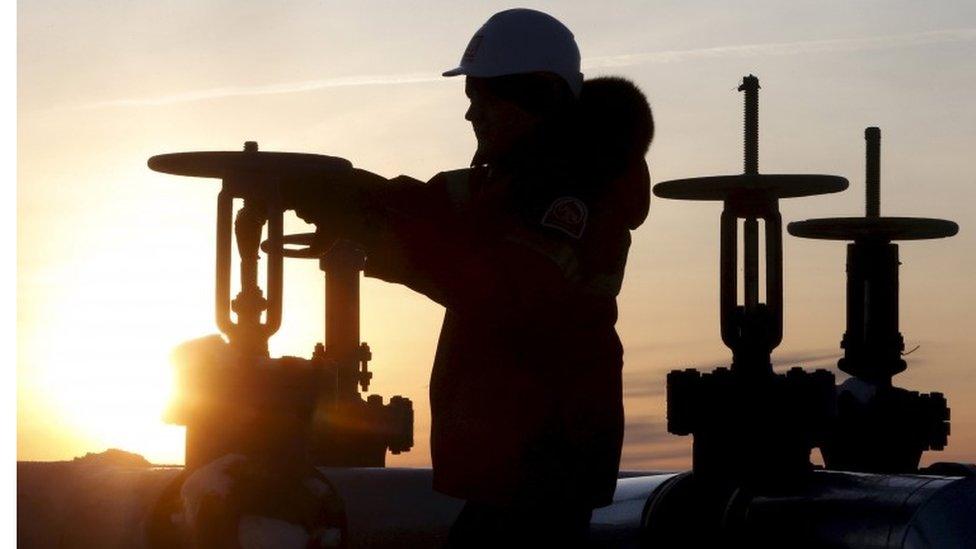
- Published17 April 2016
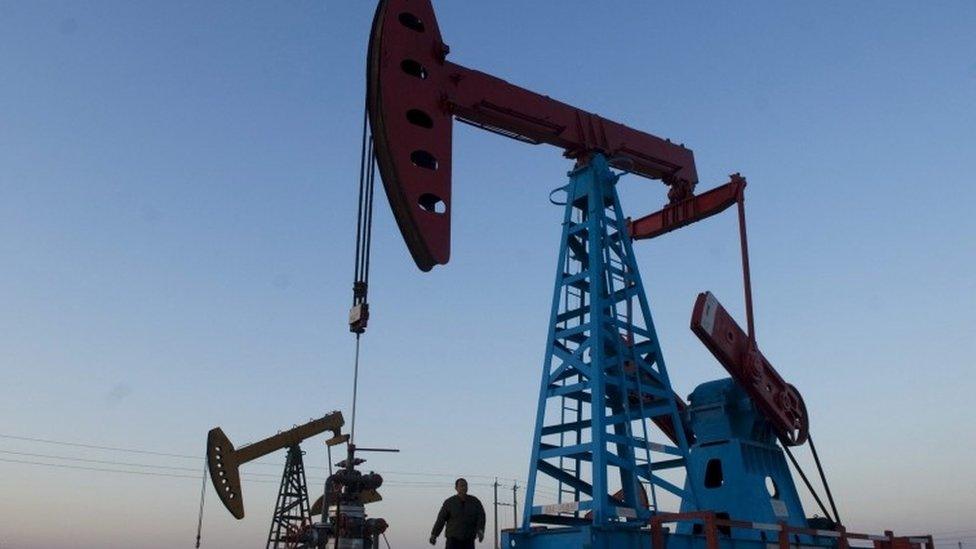
- Published15 April 2016
